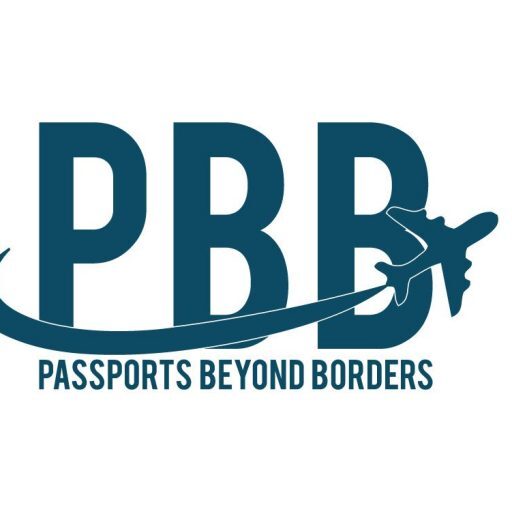The growth in international student enrollment in Malaysia that began in the mid-2000s witnessed an unusual surge around 2015 (World Education Services); thus turning Malaysia into a hub for quality, but affordable foreign education, ranking 25th of 50 national systems. There were over 136,000 international students by the end of 2017, and by September 2019, more than 90,000 foreign students were enrolled in private institutions alone. Thirty-two Malaysian universities are currently in the top 100 universities in 2021 Quacquarelli Symonds’ (QS) World University Rankings by Subject. Here are 10 things to watch out for, if you decide to choose Malaysia as your study destination.
Table of Contents
Beware of fake private universities and fraudulent recruitment agents
There are a good number of bad and fraudulent institutions that are only out for your money. They are the go-to institutions for those who come to Malaysia to do the wrong stuff. Although it may help to check out the global ranking of any institution before applying, ranking is not the only reliable means of judging, and always remember that a lot of politics goes into global or national rankings. Check out online reviews, and more importantly, whenever possible, get recommendations from credible individuals.
Opportunities abound for O’ / A’Level studies and other pre-tertiary programs
There are many international elementary and high schools as well as universities running British, American, or Australian curricula. Some also provide foundation programs. Students who graduate from these foundation programs can get direct placements in overseas universities in Australia, Britain or the US. There are also several diploma programs for those who might not be ready for higher degree programs.
You Can Choose from Public/Private Universities or from Single/Double Degrees
You can choose from public or private universities. You can study for British or Australian degrees and get the same certificate as those in the overseas campuses. You can also switch over to the overseas campuses in Britain or Australia later if you so wish. Prospective students can also choose between studying for single or double degrees within the same time frame. Read some reasons to study in Malaysia here
Be Mindful of Applicable and Important Government Policies
Government policies that affect international students are many and include issues like language requirements, visa, family, health status, etc. Some of these can vary depending on the student’s country of origin, and sometimes the level, or course of study. Visa issues are about the most critical of these policies. Ensure you get useful information.
You will need a Student Pass (Visa) to Study
Elementary and high school students can study in licensed Malaysian international schools. Parents of such students are given ‘Guardian Visa’ that enables one of the parents to stay and care for the child (who must be below 18 years). Note that such visas do not permit employment. To study for an undergraduate degree, irrespective of age or residential status at the point of admission (except for Malaysian PR holders), a student must obtain a student pass at the earliest possible time. Visa issues are many and varies based on country, institution, study level, and/or course; they cannot be fully captured in this post. Endeavour to get the right information and guidance from the institution or individuals who are familiar with the system. It may also be in your best interest to use the services of university-licensed student recruitment agencies like OT Consulting Nigeria or Arrows Transactions Sdn Bhd who provide advisory services as well as individual support to applicants at all stages, including visa processing through settling down in Malaysia.
You may also like: Study in Malaysia 2021- Student Recruitment Westminster International College (UK Degrees)
Student Life and Survival can be Hard, Get Prepared
Something practical to note about student life in Malaysia is that it will be tough studying here if you don’t have some form of sponsorship. Malaysia does not have any standard ‘work-and-study’ policy as obtains in most developed nations. This is one major challenge a foreign student should be prepared for. So, do not be deceived by any recruitment agent promising work-and-study opportunities. Malaysian student pass/visa does NOT permit employment. So, settle your funding issues before coming over, especially if you will be studying for a Bachelor or a taught Master programme.
There are Many Merit-based Funding and Scholarships Opportunities
Many private universities provide performance-based tuition discounts which can go up from 10% to 100%. The waiver value is usually determined during the pre-admission stages. In many cases, the candidate enjoy the funding throughout their study periods, provided they continue to maintain their academic performance. Postgraduate research students can also benefit from university-based fellowships and government grants, including the Malaysia International Scholarship. Some forms of sponsorship can also be obtained through research grants under supervisors. It is good to note that fundings are mostly merit-based.
Work-and-Study and Post-Study Employment Opportunities are Poor
It may be possible for students to find small jobs, especially during long school breaks, this is however not guaranteed. Things may be a bit relaxed at the capital city in Kuala Lumpur though, BUT, whatever it is, it will not pay tuition, it may supplement upkeep, but that is about it. It is important to also note that the taught programme is intensive and stressful, and it is near impossible to do any reasonable work during the session while on a taught programme. Research students may benefit from university-based or external grants when they work for their supervisors, but this is a function of what grants the supervisor has access to and what the candidate can contribute. Potential students can prepare for opportunities to earn through personal skills, including technology skills. Post-study employment opportunities are not many, but they are available if you prepare.
You Can Bring Your Family When Coming to Study in Malaysia
Postgraduate students are allowed to bring their family to stay with them when they come to study in Malaysia. However, current visa policies require that the student resume and register first, and after securing a student pass can proceed to process Dependant Passes for his/her family. The candidate needs to also prepare for family demands and expenses, especially accommodation, which can be quite high. Families with young kids need to know beforehand that due to Malaysia’s official language being Malay and the medium of instruction in public schools, it may be difficult to find affordable English schooling options. International schools are extremely expensive and may not be easy to cover for self-sponsored students. Full or paid home-schooling, English-speaking private schools and tuition are other options that can be explored. Check out related government policies too, they are always changing.
Research is central to evidence-based decision making. Ask Questions
There are many complicated decisions to make when choosing to study abroad, and though the answers are available, they may not be readily obvious. The personal experiences of others can be among the best information sources. Tuition and other costs vary across institutions, and there are various options regarding living expenses to chose from. Single or shared campus hostel accommodation, off-campus shared apartment, family accommodation, university guest house, hotel or other hospitality services, monthly rental arrangements, etc. are all possible options. The bottom line is: Do your research; because, at the end of the day, everything boils down to having the RIGHT INFORMATION.
Do you want to take your education to the next level? Let us help you find the best courses in the best universities in any of these countries of your choice: Australia, Canada, Germany, Malaysia, New Zealand, Singapore, UK, US.
Get in touch with us today here.



